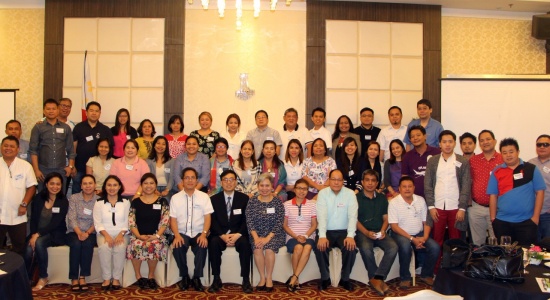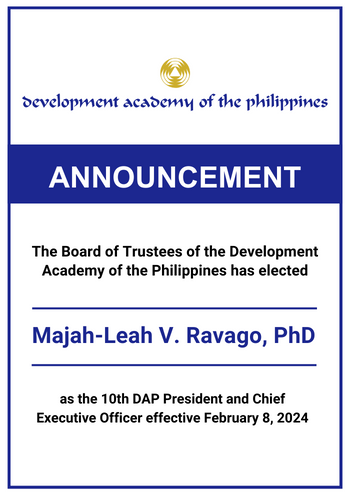
The Development Academy of the Philippines (DAP), through its program on Modernizing Government Regulations (MGR), recently conducted the Training Course on Regulatory Impact Analysis (RIA) for regulatory agencies at the Harolds Hotel in Cebu City.
The training, the second this year after its first run in March, featured Dr. Shin Kim, senior research fellow at the Korea Institute of Public Administration, as the program aimed to enable regulators to incorporate RIA in the decision-making process to improve the quality and coherence of existing and future regulations.
DAP Senior Vice President for Programs Operations Magdalena Mendoza said there is a need to significantly increase the pace of improvements in the regulatory environment in the country, highlighting the use of RIA as a tool for increased legitimacy in regulatory proposals as it is supposed to improve the effect of regulations and to ease the cost of enforcement for both the government and businesses.
Capacity building
Ms. Mendoza said that through the MGR program’s continuous capacity-building activities for regulatory authorities, a community of RIA practitioners can be created to ensure smarter and more efficient regulations.
DAP Managing Director for Consultancy and Technical Assistance Arnel Abanto also declared that the institutionalization of RIA, which may be accomplished through the initiatives of the DAP and the National Economic and Development Authority (NEDA), will directly benefit future generations as it will cultivate good regulatory practices in regulatory agencies, which in turn will facilitate a more seamless service delivery by these agencies.
Participating agencies
The 54 participants who completed the course were able to evaluate actual regulations by employing evidence-based analytical methods such as proportionate analysis, problem analysis, and cost-benefit analysis, and also by exploring potential alternative regulatory and non-regulatory instruments, various public consultation tools, and enforcement and implementation strategies.
Participating agencies included the NEDA-Region 7; Cebu Port Authority; Civil Aeronautics Board; Department of Environment and Natural Resources-Region 7; Department of Health, Energy and Regulatory Commission-Visayas Field Office; Food and Drug Administration; Housing and Land Use Regulatory Board-Central Visayas Region; Maritime Industry Authority-Central Office; Maritime Industry Authority-Region 7; PhilHealth-Region 7; Philippine Drug Enforcement Agency-Region 7; Philippine Economic Zone Authority-Mactan Economic Zone; and the Social Security System. – Lea S. Peralta




